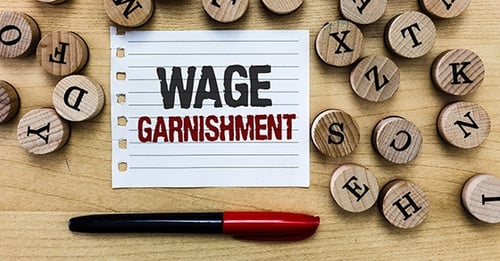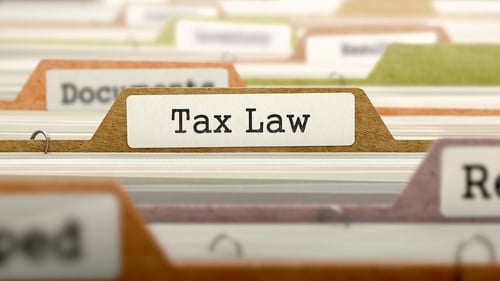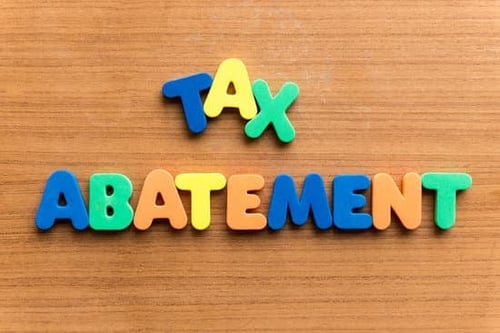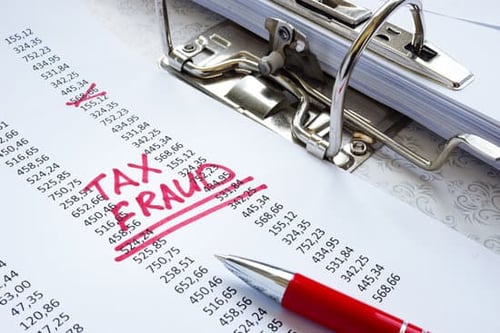Powell Tax Law Blog

Understanding the Trust Fund Penalty
When it comes to IRS terms, “trust fund penalty” sounds like an oxymoron, but the phrase has more to do with FICA than it does with Ferrari’s.
That is because the “trust fund” in question is not the type somebody inherits, but this “trust fund” is the legal entity or mechanism by which employers collect taxes such as income taxes, social security, and Medicare from their employees that are owed to the IRS.
So, far from singing “I got 99 problems … having a trust fund ain’t one”, employers will find they do indeed have a big problem on their hands if they “knowingly or willfully” do not pass the collected fund to the IRS when due.
“Trust fund recovery penalty (TFRP) is a hefty fine charged for an employer knowingly or willfully keeping employee FICA and income taxes owed to the IRS,” says Cornell Law School’s Legal Information Institute.
Clock is Ticking on Punitive Trust Fund Recovery Penalty
Employers that run afoul of the TFRP do not have a lot of time to appeal this punitive penalty which is essentially a double whammy: you not only owe those taxes that should have been passed along already but you owe a penalty equal to the taxes withheld.
As Cornell Law School’s Legal Information Institute explains: “For example, if XYZ Co. misused $10,000 of withheld taxes, the company would have to pay back the $10,000 plus a $10,000 penalty. This can add up in an organization with many employees.”
Employers have just 60 days after being notified (75 days if the employer receives the letter to an out of country address) from the date of the letter to appeal the proposed TFRP.
“If you have received this TFRP notice with regards to non-payment of employment taxes, you only have a short time to file an appeal and protest the proposed assessment,” says Steve Powell of Powell Tax Law. “This is a very serious matter and should be handled with care.”
Why We Have the Trust Fund Penalty
Congress passed the law that created the TFRP to persuade prompt payment of withheld income and employment taxes, including social security taxes, railroad taxes, or collected excise taxes.
“These taxes are called trust fund taxes because you actually hold the employee’s money in trust until you make a federal tax deposit in that amount,” says the IRS. “The TFRP may apply to you if these unpaid trust fund taxes cannot be immediately collected from the business.”
Employers are trusted with submitting the taxes withheld from an employee’s paycheck into a trust until it is time to pay them to the IRS, but there is temptation by some business owners to borrow from this trust fund to keep their business going, or others have even siphoned off the trust funds to pay their own bills.
Who Can Be Responsible for the TFRP?
Individuals associated with corporations, LLC’s, and partnerships, are often surprised to learn that they can personally be held financially responsible for the failure to pass along the taxes collected from employees, and the employers share owed, to the IRS.
“Trust fund penalties have been assessed against officers, accountants, lawyers, bookkeepers, and even secretaries,” says Powell. “The IRS is notorious for throwing out a wide net which can ensnare many individuals who likely are not legally responsible for the trust fund penalty.”
The IRS says that a TFRP may be assessed against any person who:
- Is responsible for collecting or paying withheld income and employment taxes, or for paying collected excise taxes, and
- Willfully fails to collect or pay them
“A “responsible” person is a person or group of people who has the duty to perform and the power to direct the collecting, accounting, and paying of trust fund taxes,” says the IRS.
This person may be:
- An officer or an employee of a corporation,
- A member or employee of a partnership,
- A corporate director or shareholder,
- A member of a board of trustees of a nonprofit organization,
- Another person with authority and control over funds to direct their disbursement,
- Another corporation or third party payer,
- Payroll Service Providers (PSP) or responsible parties within a PSP
- Professional Employer Organizations (PEO) or responsible parties within a PEO, or
- Responsible parties within the common law employer (client of PSP/PEO).
Defining “Willfulness” When it Comes to TFRP
The IRS says that for “willfulness” to exist, the responsible person:
- Must have been, or should have been, aware of the outstanding taxes and
- Either intentionally disregarded the law or was plainly indifferent to its requirements (no evil intent or bad motive is required).
“Using available funds to pay other creditors when the business is unable to pay the employment taxes is an indication of willfulness,” says the IRS.
The IRS may ask you to complete an interview to determine the scope of your duties and responsibilities regarding the TFRP.
“Responsibility is based on whether an individual exercised independent judgment with respect to the financial affairs of the business,” explains the IRS. “An employee is not a responsible person if the employee's function was solely to pay the bills as directed by a superior, rather than to determine which creditors would or would not be paid.”
Figuring and Assessing the Trust Fund Penalty
The IRS says the amount of the penalty is equal to the unpaid balance of the trust fund tax. The penalty is computed based on:
- The unpaid income taxes withheld, plus
- The employee's portion of the withheld FICA taxes.
For collected taxes, the penalty is based on the unpaid amount of collected excise taxes.
“Once the IRS asserts the penalty, they can take collection action against your personal assets,” says Powell. “The IRS can file a federal tax lien or take levy or seizure action. And trust fund taxes are never dischargeable in bankruptcy.”
For all these reasons, and more, TFRP is a serious legal matter.
Contact Powell Tax Law today if the IRS has notified you of a trust fund recovery penalty so you can help representation by experienced tax attorneys who will defend your rights under the law.







